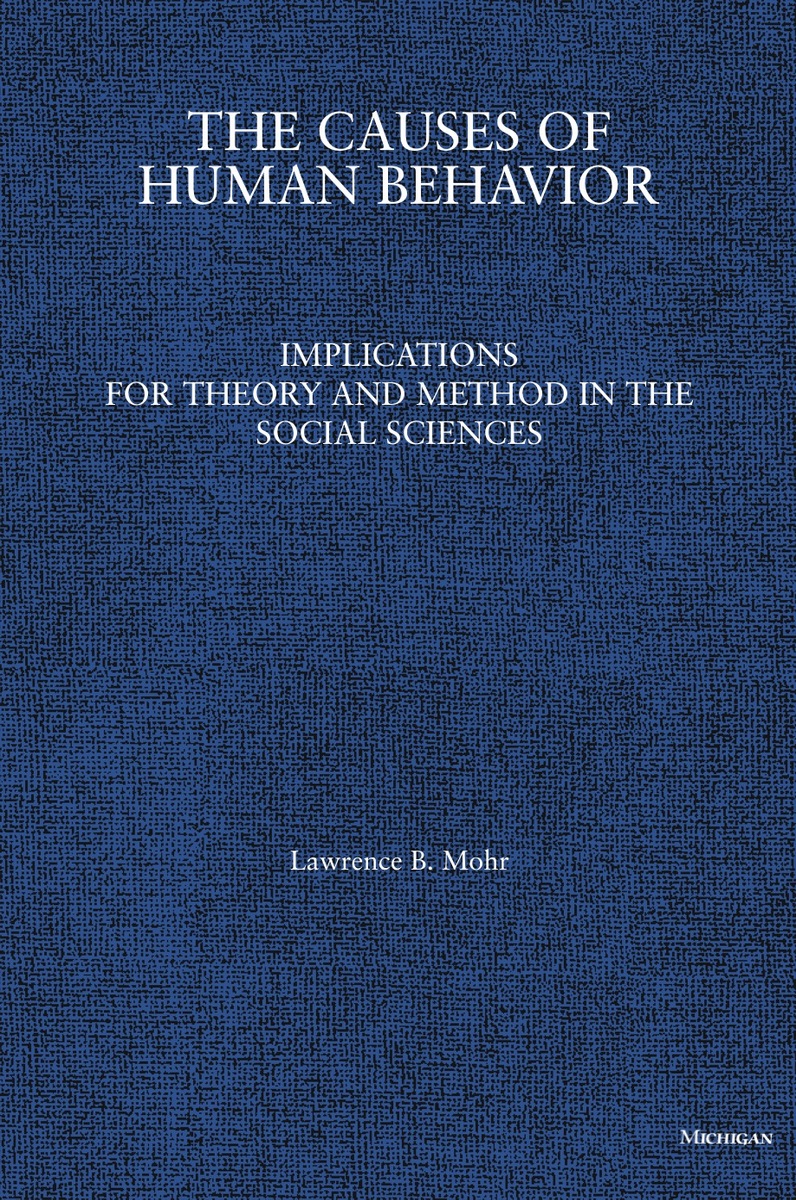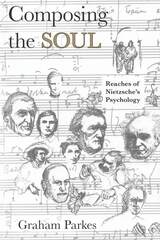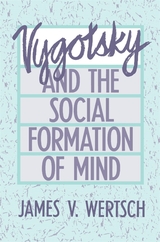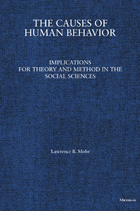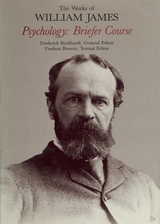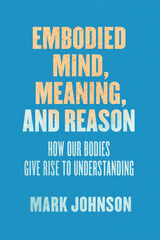The Causes of Human Behavior: Implications for Theory and Method in the Social Sciences
University of Michigan Press, 1996
Cloth: 978-0-472-10665-3 | eISBN: 978-0-472-02205-2 (standard)
Library of Congress Classification BF121.M5794 1996
Dewey Decimal Classification 300.1
Cloth: 978-0-472-10665-3 | eISBN: 978-0-472-02205-2 (standard)
Library of Congress Classification BF121.M5794 1996
Dewey Decimal Classification 300.1
ABOUT THIS BOOK | AUTHOR BIOGRAPHY | TOC | REQUEST ACCESSIBLE FILE
ABOUT THIS BOOK
Acknowledging that though the disciplines are supposed to be cumulative, there is little in the way of accumulated, general theory, this work opens a dialogue about the appropriate means and ends of social research based in analysis of fundamental issues.
This book examines two root issues in the methodology of explanatory social research--the meaning of the idea of causation in social science and the question of the physiological mechanism that generates intentional behavior. Conclusions on these as well as on several derived problems emerge through the analysis. Among the latter, the analysis shows that neither universal nor probabilistic laws governing human behavior are possible, even within the positivist or empiricist traditions in which laws are a central feature. Instead, the analysis reveals a more modest view of what an explanatory social theory can be and do. In this view, the kind of theory that can be produced is basically the same in form and content across quantitative and qualitative research approaches, and similarly across different disciplines. The two streams of analysis are combined with resulting implications for large-sample, small-sample, and case study research design as well as for laws and theory.
Written for the practicing empirical researcher in political science and organization theory, whether quantitative or qualitative, the major issuesand findings are meant to hold identically, however, for history, sociology, and other social science disciplines.
Lawrence B. Mohr is Professor of Political Science and Public Policy, University of Michigan.
See other books on: Causes | Human behavior | Method | Psychology | Social Sciences
See other titles from University of Michigan Press
